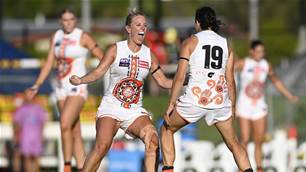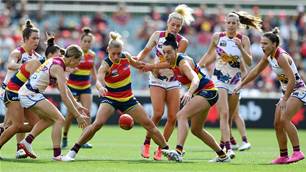It’s not too often that we witness a footy team chase a fourth straight premiership. But there’s the Hawks again.
It wasn’t supposed to happen in the modern AFL. But only a decade on from the Brisbane Lions’ reign from 2001-03, Alastair Clarkson’s side has a grand slam of flags in its sights. And few would doubt them, if only because Hawthorn capability at this time of year has become imprinted on the footy fan subconscious.
There have been doubts at points during this season (as there have been in each of the last three years). The most commonly raised point is the surfeit of narrow victories – five by less than a goal. They point to the Hawks’ winning know-how, but also imply a what-if of random variables. Had they lost two or three out of those matches and had to start this finals campaign from the lower half of the eight, how different would things be?
Perhaps it’s entirely the wrong question to ask. Instead, query the assumption that Hawthorn is sailing against the tide of the AFL’s equalisation efforts. It’s never easy to win a premiership, let alone string them together. But the Hawks’ brilliant run is hardly impossible, particularly in an era that hasn’t been as equal as the rhetoric.
Pose the question of putting Hawthorn’s achievement into perspective, and Paul Roos gives a measured answer. He’s dealt with it from both sides: looking across at a rival with the Swans, looking up while rebuilding at the Demons. He trenchantly notes that for all the AFL’s talk about parity, look who’s in the top four, yet again.
“Hawthorn is going for its fourth, Sydney is going for their third since 2005, Geelong is going for its fourth since 2007,” Roos says. “Having said that, it shouldn’t devalue what Hawthorn is doing, just because the system is not working as the AFL says. You’ve still got to front up every week and be able to do it: their leaders, their culture, their coaching, they’re an unbelievable football club. They keep fronting up every week and striving every week.
“They’re a great footy team, and every club aspires to be like Hawthorn.” Especially this September.
Related Articles

Socceroo star's message to kids: Don't be an AFL player

Updated: AFLW Round 2 preview and schedule


.png&h=115&w=225&c=1&s=1)










